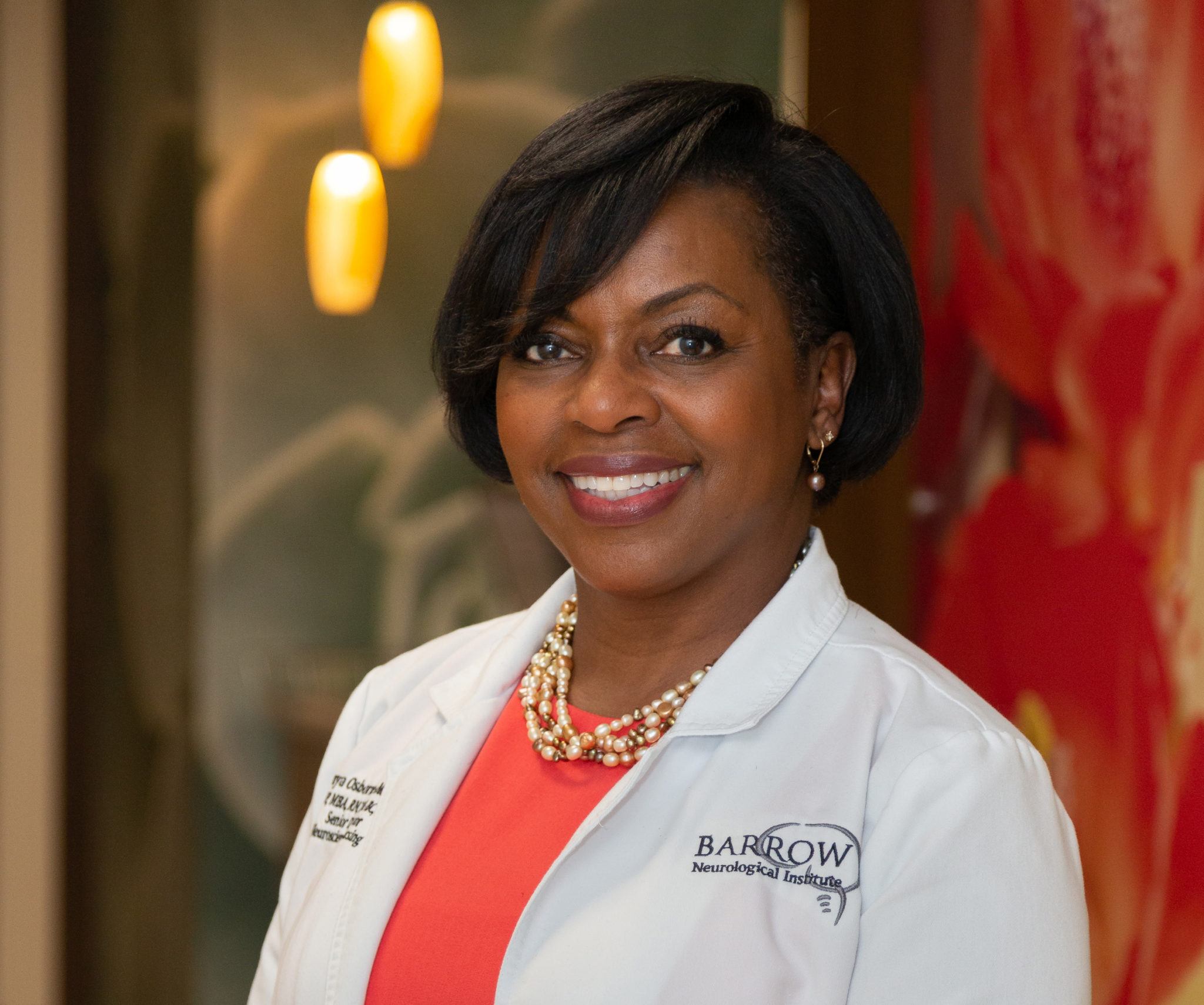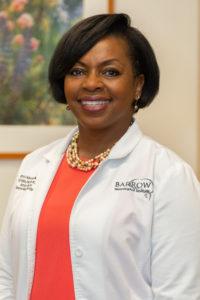
Meet Tanya Osborne-McKenzie: Senior Director of Neuroscience Nursing
It was an unconventional transition. Osborne-McKenzie hadn’t yet worked as a supervisor, such as a charge nurse or nurse manager.
“I really wanted to stay at the bedside,” she said. “But my mom would say, ‘Be the change you want to see.’”
Osborne-McKenzie came to realize that no matter which position a nurse holds, their role is fundamentally the same: to coordinate the care of the patient.
From the Bedside to Leadership
Osborne-McKenzie joined Barrow Neurological Institute as senior director of neuroscience nursing about four months ago, but she’s worked in the nursing field for 30 years.
Her exposure to nursing began in high school. As someone who has always enjoyed learning and keeping busy, she signed up for a nurse’s aide class while on summer break. When her job at a fast-food restaurant ended, she took a position as a nurse’s aide at a hospital on California’s Monterey Peninsula where she lived.
After graduating from high school, Osborne-McKenzie fed her zest for learning by taking a variety of classes at a local community college. She accumulated enough credits to earn an associate’s degree in general education.
One of her colleagues from the hospital encouraged her to apply for the nursing program at the college. Osborne-McKenzie was accepted and decided to enroll, but she intended to keep her career options open.

Once she began working as a critical care nurse at Salinas Valley Memorial Hospital, though, she fell in love with the profession. She decided to return to school for her bachelor’s degree in nursing.
Osborne-McKenzie thought she would always work at the bedside. However, while teaching the California Nursing Practice Act to community college students, she realized many nurses and nursing students lacked an understanding of the business of health care.
Hoping to change that, she completed her master’s degree in both nursing and business administration. She then made the transition from a bedside nurse to a director at Salinas Valley Memorial Hospital.
Osborne-McKenzie underwent leadership training through the American Organization for Nursing Leadership. In 2014, she earned her Executive Leadership Doctorate of Nursing Practice from the University of California-San Francisco.
Equipped with a doctorate degree, Osborne-McKenzie made the difficult decision to leave her longtime employer for a new challenge. She spent the next four years working at Saint Agnes Medical Center in Fresno, California. She spent most of her tenure there as director of critical care services, but she served as the interim vice president of nursing and patient safety officer for her last six months.
Rather than return to her previous director role after the interim position ended, Osborne-McKenzie decided to take a year off to spend more time with her daughter, who was a senior in high school.
After seeing her daughter off to college, Osborne-McKenzie felt ready to get back to work. As an academic medical center ranked 11th in the nation for neuroscience, Barrow appealed to her.
“I was looking for a place where I could learn and grow but also a place where I could bring the skillset I have to offer,” she said. “This is the perfect spot.”
Perspectives as a Leader
Osborne-McKenzie’s role at Barrow is to lead and advance the practice of nursing. She often draws on her expertise in performance improvement and patient safety.
Osborne-McKenzie tries to remember to treat each patient as she would want the person whom she loves most in the world to be treated, and that’s her daughter.
When I was in the ICU and had one patient, and when I became a director and had multiple patients, I knew every decision I made would impact someone’s life. That’s how I go about my work every day.
-Tanya Osborne-McKenzie, Senior Director of Neuroscience Nursing
“When I was in the ICU and had one patient, and when I became a director and had multiple patients, I knew every decision I made would impact someone’s life,” she said. “That’s how I go about my work every day.”
But the most challenging part of being a nurse, she said, is that the decision that’s best for the patient may not always make everyone else happy. That’s why she advises aspiring nurses to develop resilience.
“It’s a rewarding but challenging career, no matter what job you’re doing or where you’re doing it,” she said.
She also advises students to complete a four-year nursing program and focus on obtaining a broad knowledge base. Nursing school is not about passing classes or Boards, she said. It’s about gaining a body of knowledge that allows you to care for any patient.
After all, “Whether you’re at the bedside or sitting in the director’s chair, that is the role of the nurse.”
